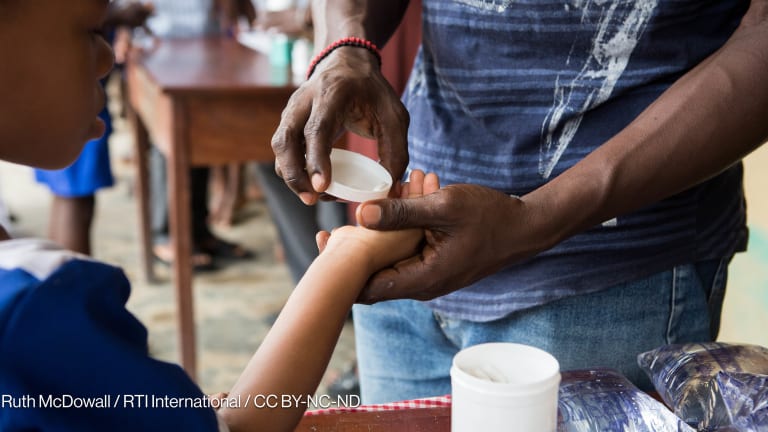
Pharmaceutical giants Johnson & Johnson and GlaxoSmithKline PLC are changing the way they do business in the developing world.
Over the past week, both drug firms have announced significant revamps to their strategies in developing countries that aim to increase access to their treatments through relaxed patent protections and expanded partnerships with local health care providers.
The success of public health initiatives in developing countries often hinges on the same two pressure points that make for tricky policy implementation on the business side: market access and product affordability. The new policies recently launched by these two companies give a significant boost to both efforts.
GSK, which for many years has employed a strategy in emerging markets of pricing its medicines based on local economic conditions, is now extending that approach to its patent policy. It will no longer seek patents for its medicines in least developed and low income countries, the company announced last week. The decision to abandon patent protection will expand the market access of GSK’s medicines by allowing generic producer companies to manufacture lower cost versions of its drugs without the threat of legal action.
“Intellectual property protection is a vital part of health care innovation, providing necessary incentives for investment in research to create new treatments which can help people around the world,” Andrew Witty, chief executive of GSK, said of the company’s decision. “However, we recognize that the global health care challenge requires us to be flexible on our approach and responsive to different needs.”
GSK still plans to file patents in lower-middle-income countries, but intends to grant various licensing agreements that allow generic versions of its medicines to be sold for a period of 10 years — even if a country graduates from lower middle income status in that time period. In exchange, the London-based company will seek what it called a “small royalty” on those sales. GSK will continue to file for full patent protection in high- and upper-middle countries, as well as countries part of the Group of 20 of major economies.
The British pharmaceutical company also announced it intends to commit its future portfolio of cancer drugs to the Medicines Patent Pool — a United Nations-backed public health initiative that facilitates voluntary license agreements to generic drug companies in developing countries. So far, the MPP has granted licenses for HIV, hepatitis C and tuberculosis treatments, with GSK’s commitment potentially expanding the pool to cancer medicines.
Johnson & Johnson, meanwhile, officially unveiled a new global public health strategy on April 6 that aims to consolidate and streamline its end-to-end services of health care delivery — from research and development to point of care diagnostics. Much of that new plan focuses on partnerships with local health care networks in developing countries.
The strategy will be driven out of its newly launched hub in Cape Town, South Africa — opened April 6 — and hinges on what the company describes as delivering locally executable programs in collaboration with local health care partners.
“We opened up operations in Cape Town to have people on the ground to work with local nongovernmental organizations in order to deliver products to the patients who really need it,” Jaak Peeters, Johnson & Johnson’s head of global public health, told Devex.
The types of partnerships to forge and replicate across other developing markets, for example, can include Johnson & Johnson business development teams collaborating with African academic centers and entrepreneurs on local incubators for medical based startups, or increasing investment in primary health care delivery. Currently, the company is involved in what it calls a social entrepreneurship program that partners with local clinics to train individual caregivers in low-income districts across South Africa.
Initial implementation of Johnson & Johnson’s strategy will focus on three core areas — HIV, tuberculosis and maternal, newborn and child health — with plans to expand both in health needs and geographic reach.
The trigger for the new partnerships-focused approach, Peeters told Devex, is a new medicine developed by Johnson & Johnson for multidrug resistant tuberculosis and a desire to boost its market penetration.
But a common choke point for the company in expanding that reach lies in delivery of services: “It’s not intellectual property that’s in the way of getting drugs,” Peeters said.
Like GSK and many other big pharma companies, Johnson & Johnson employs a strategy of tiered pricing, technology transfers and donations programs to expand access of its medicines in local markets.
“We make [the medicines] available through various mechanisms, but still don’t achieve the impact we desire,” Peeters noted. “It’s very clear that for your products to deliver value they must be affordable, but the next level is about delivery of care.”
Join Devex to network with peers, discover talent and forge new partnerships in international development — it’s free. Then sign up for the Devex Impact newsletter to receive cutting-edge news and analysis at the intersection of business and development.








